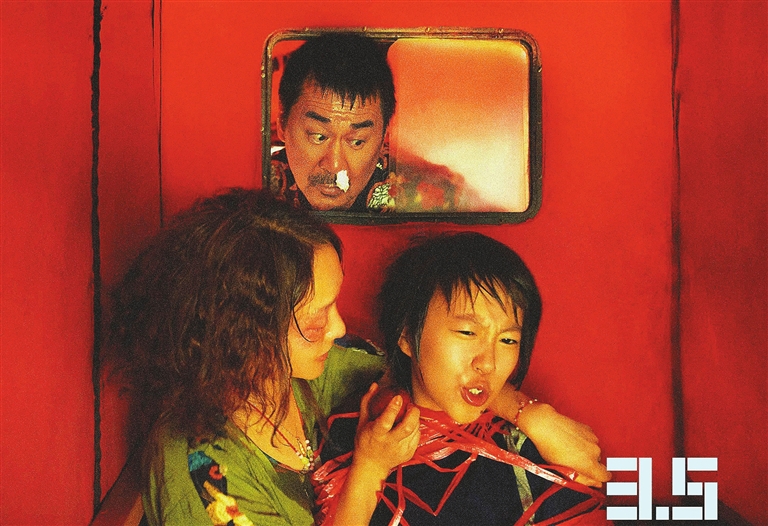
Zee Wong zedwong126@126.com VETERAN actor Chen Jianbin offers the audience a rich and interesting experience by directing and starring in “The Eleventh Chapter,” a story that tells the struggles of Ma Fuli (Chen Jianbin) as he tries to stop the municipal theater from adapting his case into a stage play called “Breakneck Brake.” Ma was sentenced to 15 years in prison for murdering his ex-wife Jiang Fengxia and her lover Li Jianshe. However, as the film unfolds, the audience may be reminded of the movie “Rashomon” by legendary Japanese director Akira Kurosawa. In Chen’s movie, multiple characters, including Ma, Brother Pi (Jia Bing), who was Li’s younger brother, and the cousin of Jiang, retell the past from very different perspectives. The entire film could be compared to a glass of a mystical cocktail, skillfully concocted shaking up the seemingly contradictory opulent artsy ambience and a full bodied flavor of ordinary life. Stimulating the palate was a profound musky taste of explorations of humanity and philosophy, bursting with a light spritz of humor, and an almost exotic hint of retro, surely leaving an endless aftertaste. Zhou Xun’s portray of Jin Cai-ling — the mother of the rebellious daughter Jin Duouo (Leah Dou) – who built a remarried family with Ma, really caught the audience off guard with her makeup and acting. Contrary to the usual sensible and delicate beauty Zhou had presented to the public, in this film she portrays an unkempt and shrewish side of a woman without reservation. If floppy T-shirts, baggy pants, and a blotched and wrinkled face with a double chin weren’t enough, black and blue were added to her normally expressive eyes. The dramatic tension climaxed when Jin pushed her crotch out against a man, disregarding her “big stomach” and yelling obscenities. Other details such as the close shots of an ant crawling on Jin’s neck as she lay down next to Ma on the street to make a scene, and mosquitoes buzzing around the feet, tickled the senses of the viewers and assured them of reality. Yet the film was full of artistic charm, achieved through the employment of various lightings and rich imageries. Some memorable scenes were the contrast of shades on Duoduo’s face and the revolving illumination in the amusement park when she went on a ride after confessing her unmarried pregnancy to Ma, the circular spot light cast on the director Quentin Hu (Da Peng), a married man who had an affair with his lead actress Jia Meiyi (Chun Xia) as he was “stoned” with shoes, and the glaring torch lights carried by the actors as they walked through the seats of the audience, before the opening of the play. The fundamental imagery that persists throughout the movie is a large piece of red cloth, a metaphor for adultery, reminiscent of the scarlet letter. Starting off as a prop on the stage veiling the scandal of Jiang and Li, it becomes a pointer to reveal the affair of Hu and Jia, and finally a drenched and weighty object clutched in the fist of Ma, as an atoning heavy red rain poured over him. Though the film was all about heavy topics – murder, adultery, unmarried pregnancy, Chen managed to infuse a sense of humor and wit throughout the two hours. Ma’s head stuck between bars cleverly hinted at his awkward position, the wordplay of the commanders’ names and ranks reflected a sensitivity and vanity about saving face, and the warmhearted but nosy old neighbor touched on the blurring boundary in Chinese relationships. Furthermore, a kind of black humor was also added as the audience saw the power of money in altering the play, and the self-righteousness of the adulterers. Last but not least, a rather eye-catching ancient element was zhanghuiti, used quite innovatively in the film. It is a traditional narrative style of Chinese novels, with captions in the form of single sentences or couplets to summarize the chapter. Each chapter can stand as an independent story, yet it advances the development of the plot. As the name of the film indicates, the story is divided into eleven chapters, but with the last chapter intentionally left open ended. The movie is now being screened in Shenzhen. | 
